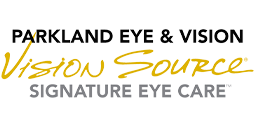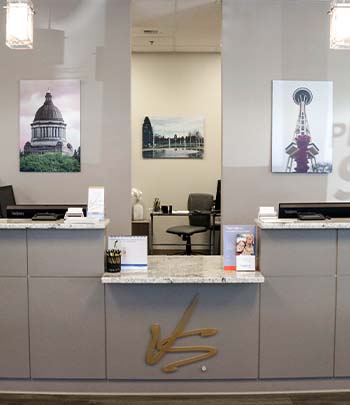Preserving Your Vision from The Silent Thief of Sight
Glaucoma is often known as “the silent thief of sight” for its ability to develop over time without noticeable symptoms. However, once glaucoma affects your vision, the effects are permanent.
The key to protecting your sight from glaucoma is having regular eye exams. Our Parkland Eye & Vision team is ready to help protect your eyesight. Book your appointment today.
What Is Glaucoma?
Glaucoma is a group of eye diseases that damage your optic nerve. Your optic nerve is responsible for managing communication between your eyes and brain, so damage can lead to permanent vision loss.
The most common version of the disease is open-angle glaucoma, which develops over time and might not cause noticeable early symptoms. Other common types of glaucoma include closed-angle glaucoma and normal-tension glaucoma.
How We Detect Glaucoma
Glaucoma is often associated with high internal eye pressure (intraocular pressure or IOP) levels. Still, certain versions of the disease can develop even when your IOP levels are within normal range.
We use a few techniques to detect glaucoma, some of which we may perform during a routine eye exam. If we discover signs of glaucoma, we’ll conduct further testing and work on creating a personalized management plan to help preserve your vision.
Optos Retinal Imaging
If you’re worried about us having to dilate your eyes to get a better look into your eye health, well, don’t worry any longer!
Optos retinal imaging gives us a comprehensive view of the various structures in your eye that work together to form your vision, including your optic disc—the area where your optic nerve connects to your eye—all without dilating your pupils.
By observing your optic disc, we can look for potential signs of glaucoma.
No-Puff Tonometry
Tonometry measures IOP levels. At Parkland Eye & Vision, we use a no-puff technique to comfortably and accurately read your IOP levels and detect possible signs of glaucoma.
Managing Your Eye Health
No pair of eyes are the same, so it’s important to us to create personalized management strategies to manage your glaucoma development and preserve your eyesight.
The first step, though, is coming in for an eye exam. By looking at your current eye health and assessing your personal and family health history, we can determine your risk for developing glaucoma.
Medications
Prescription eye drops are one of the most common strategies for managing glaucoma. These medications are designed to lower pressure in your eye and mitigate the risk of vision loss.
Glaucoma Surgery
Glaucoma surgery is a procedure that helps stabilize IOP levels if medications aren’t working.
In these cases, we may refer you to an eye surgeon (ophthalmologist) to perform these procedures. We may also ask you to keep taking your medications after your surgery to help preserve your sight.
Learn More About Your Eye Health
There is so much to uncover about your eye health. Please visit our Eye Disease Diagnosis & Management page to learn more about other eye diseases, or book an appointment with us today to get the care you need.
Our Brands
Fashion & Function












